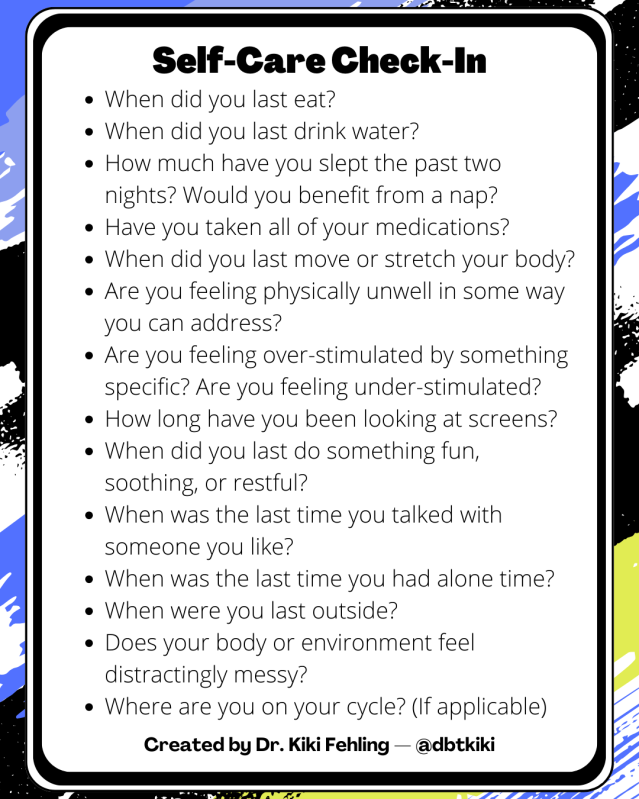Stress
5 Tips for Coping With Distressing World Events
How to deal with stress and distress related to the news.
Posted December 12, 2023 Reviewed by Abigail Fagan
Key points
- Reading or watching violent world news can be stressful and exhausting.
- Coping skills include distress tolerance, self-care, and feeling your emotions, among others.
- Maintaining your emotional self-care can help you be a better activist or friend to someone in need.
Reading about terrible things happening in the world can be overwhelming and exhausting, particularly if you are emotionally sensitive. Watching violence on social media and the news can feel traumatizing. You may feel rage at injustice. You may feel fear for your or your family's physical safety. You may feel intense grief or existential hopelessness. All of these emotional reactions, and any others, make sense.
If you’ve been struggling lately, here are five tips for coping with distressing world events and news.
1. Regulate your nervous system. Stress is stress. The stress you feel from watching violence on TV can have the same physical impact on your body as the stress you’d feel if you were watching it in person. If you notice yourself feeling agitated after watching the news, your fight-flight-or-freeze response may have been activated, and that's your cue to regulate your nervous system. Dialectical Behavior Therapy (DBT) teaches several coping skills, called the TIPP skills, that are designed to deactivate your stress response and help you relax. But there are many coping skills available that can help in similar ways. Meditating, deep breathing, stretching, and exercising or moving your body are all grounding options.
2. Focus on distress tolerance. DBT offers many other distress tolerance skills beyond the TIPP skills. These skills are designed to be used when you’re overwhelmed or when there’s something very painful happening that you can’t change right in this moment. With large-scale violence and threats of violence, you may certainly want to problem-solve and take steps towards activism or volunteering, but you often first need to focus on coping with the pain in this moment. Self-soothing through your senses can help. Try eating foods you like, wearing soft clothes, wrapping yourself in a soft or weighted blanket, lighting scented candles, or listening to music that you find relaxing or energizing. Distracting yourself with fun activities, physical sensations, or cognitive games is also an option.
3. Maintain physical self-care. When coping with overwhelming news, physical self-care is paramount for emotional self-care. Focusing on your physical body can offer a concrete anchor to focus on when the world feels chaotic. Make sure you are eating, sleeping, exercising, and maintaining your other normal physical health habits as much as possible for you. If certain substances or foods help you cope but can cause you problems, be sure not to overuse those coping methods. Get outside in nature if you can. Balance alone time with social interactions. Rest. Use the list below list as a "self-care check-in" periodically, or whenever you're just feeling a bit melancholic, irritated, or "off" emotionally.

4. Feel your emotions. While it sometimes can feel safer to avoid feeling our emotions, suppressing emotions can make them more intense. So, if you’re feeling grief, anger, fear, or any other emotions, actually feel them. Carve out time in your day to cry, journal, or talk to a friend. Of course, you may have to limit how much you feel at certain times; that’s OK. Do your best to find some safe time and space to feel, support, and validate your inner experiences. If you struggle to know what it means to feel your emotions, DBT offers advice through the Mindfulness of Current Emotions skill.
5. Turn off the news. Emotions are caused by prompting events (e.g. triggers). Sometimes the best thing to do to stop painful emotions is to stop their prompting events. In the case of painful news, for most people, this probably means reducing or eliminating your access to violent images, angry takes, and informational updates about world news. Log-off of social media. Turn off your phone. Unplug from tech. Consume less news than you normally do. Tell your loved ones you need a break from talking about an event. Not watching the news does not mean you don’t care about what’s happening in the world. Staying healthy in the long run will allow you to be a better activist or a better friend for the people most in need.
It’s important to note that not all of these tips will be possible for certain people. It's hard to avoid the news when you're living it, for example. If you’re significantly struggling and your normal coping skills aren’t helping, a licensed therapist will best be able to help you cope by offering you individualized support and feedback. You can find a clinician through the Psychology Today Therapy Directory.
© 2023 Dr. Kiki Fehling. A version of this post also appears on Kikifehling.com The information in this post is for psychoeducational purposes, and it is not a substitute for the professional advice provided by your licensed mental health provider.


